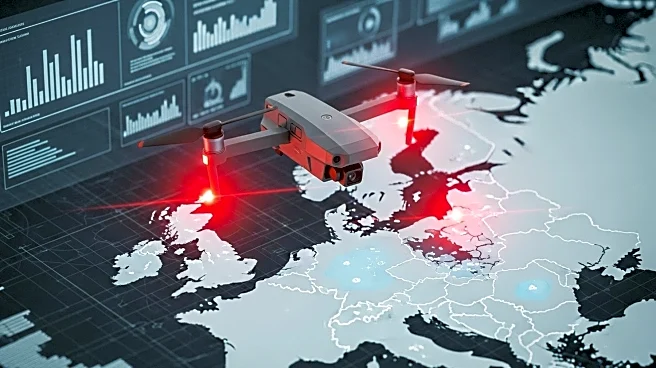What's Happening?
Mysterious drones forced the closure of Copenhagen Airport, marking what Danish officials have called a 'serious attack' on critical infrastructure. The incident coincides with a similar event at Oslo Airport in Norway, where airspace was closed for several hours. These occurrences are part of a series of airspace violations across Europe, suspected to be linked to Russian activities. As NATO leaders gather at the United Nations General Assembly, they are weighing a tougher response to these incursions. Danish Prime Minister Mette Frederiksen has not ruled out Russian involvement, citing previous incidents in Poland, Romania, and Estonia.
Why It's Important?
The drone incidents at major airports in Denmark and Norway highlight the escalating security threats posed by suspected Russian incursions. These events have significant implications for NATO's defense strategies and the security of European airspace. The incidents may prompt NATO to adopt more aggressive measures to deter Russian aggression and protect member states. The potential for hybrid attacks involving drones raises concerns about the vulnerability of critical infrastructure and the need for enhanced security protocols. The situation underscores the importance of international cooperation in addressing security challenges.
What's Next?
NATO is expected to convene discussions on the recent airspace violations and consider implementing stronger defense measures. European countries may increase surveillance and security at airports to prevent future drone incidents. The situation may lead to diplomatic efforts to address Russian aggression and reinforce NATO's commitment to defending member states. The incidents could also influence policy decisions at the United Nations General Assembly, where leaders are already addressing security concerns.









